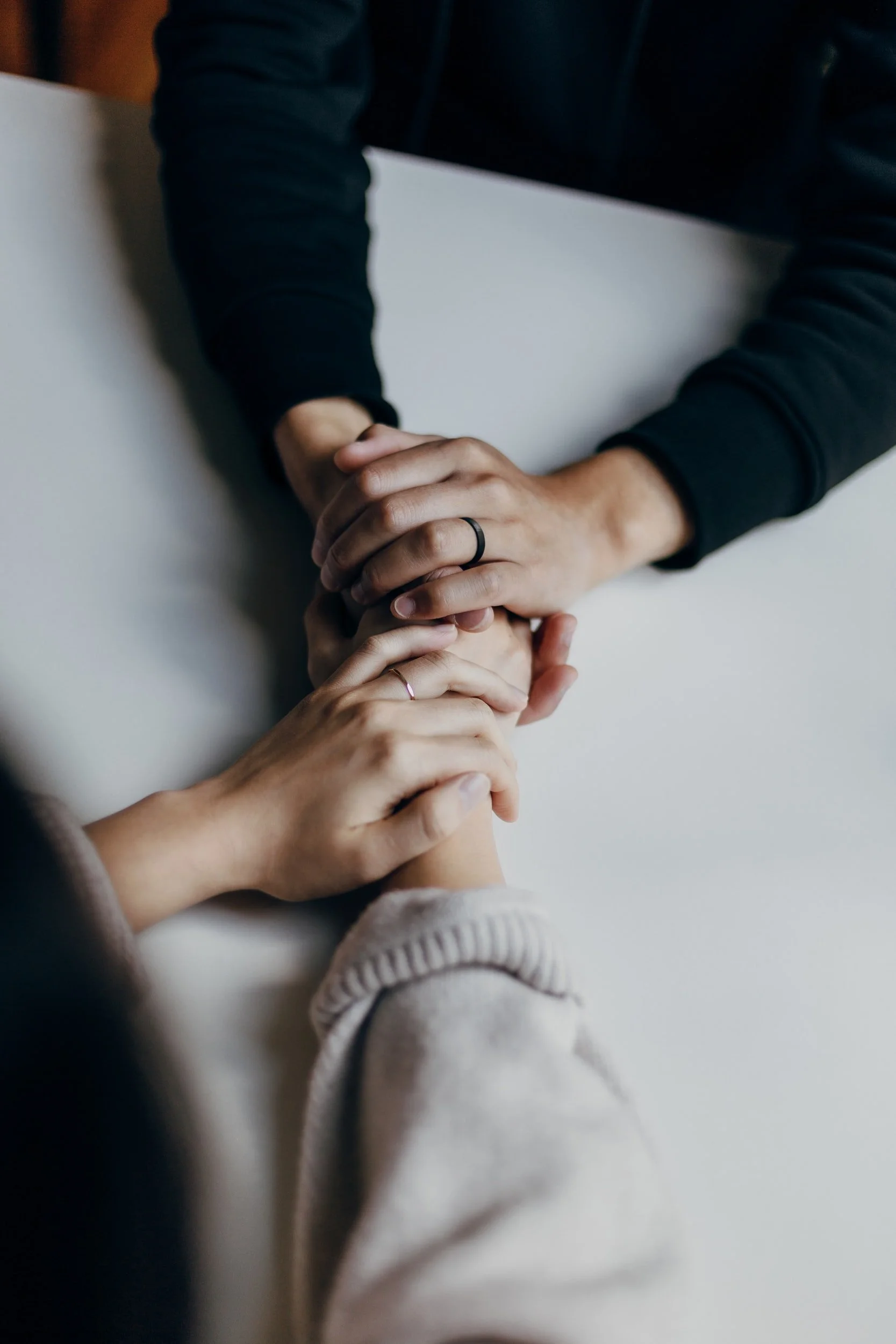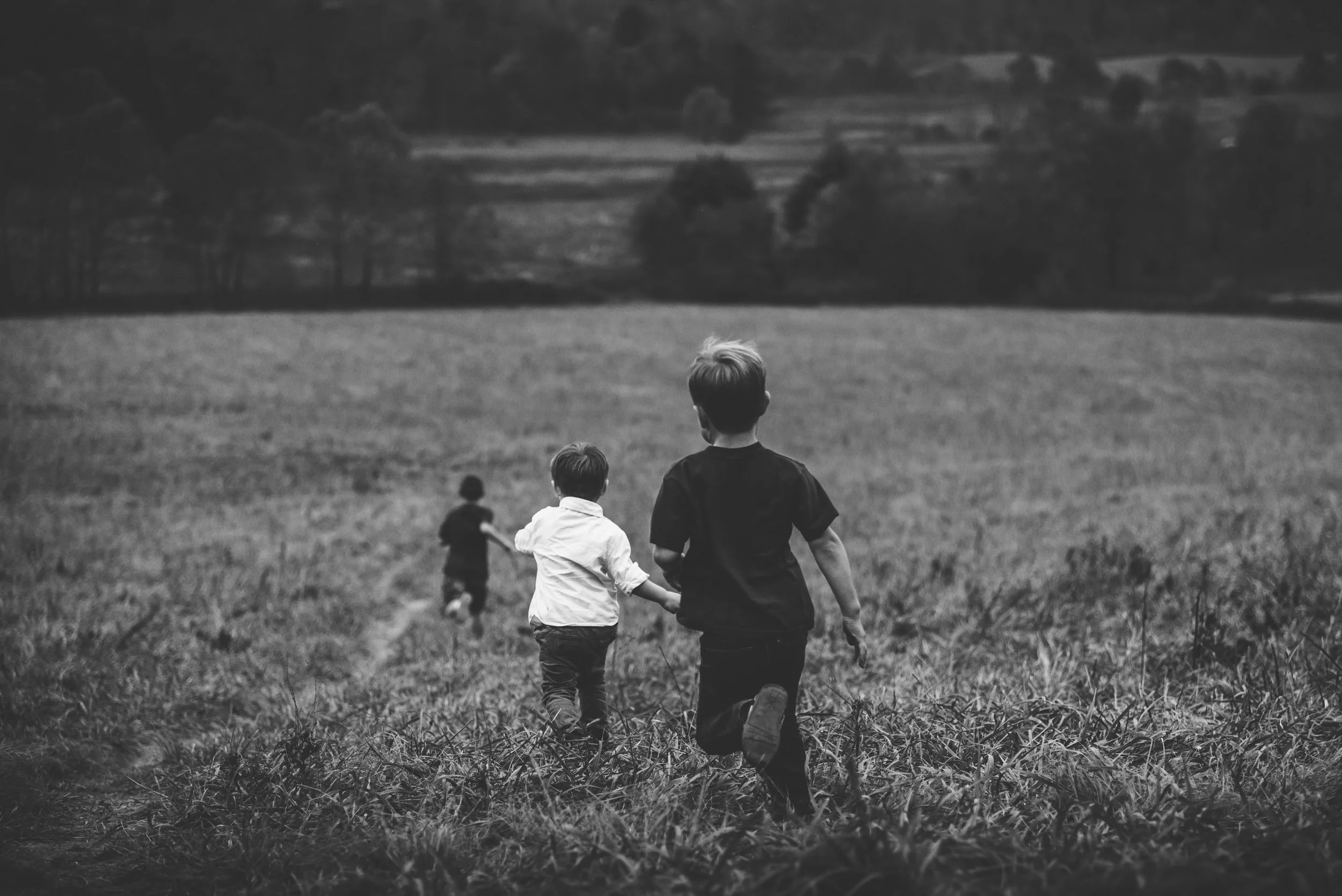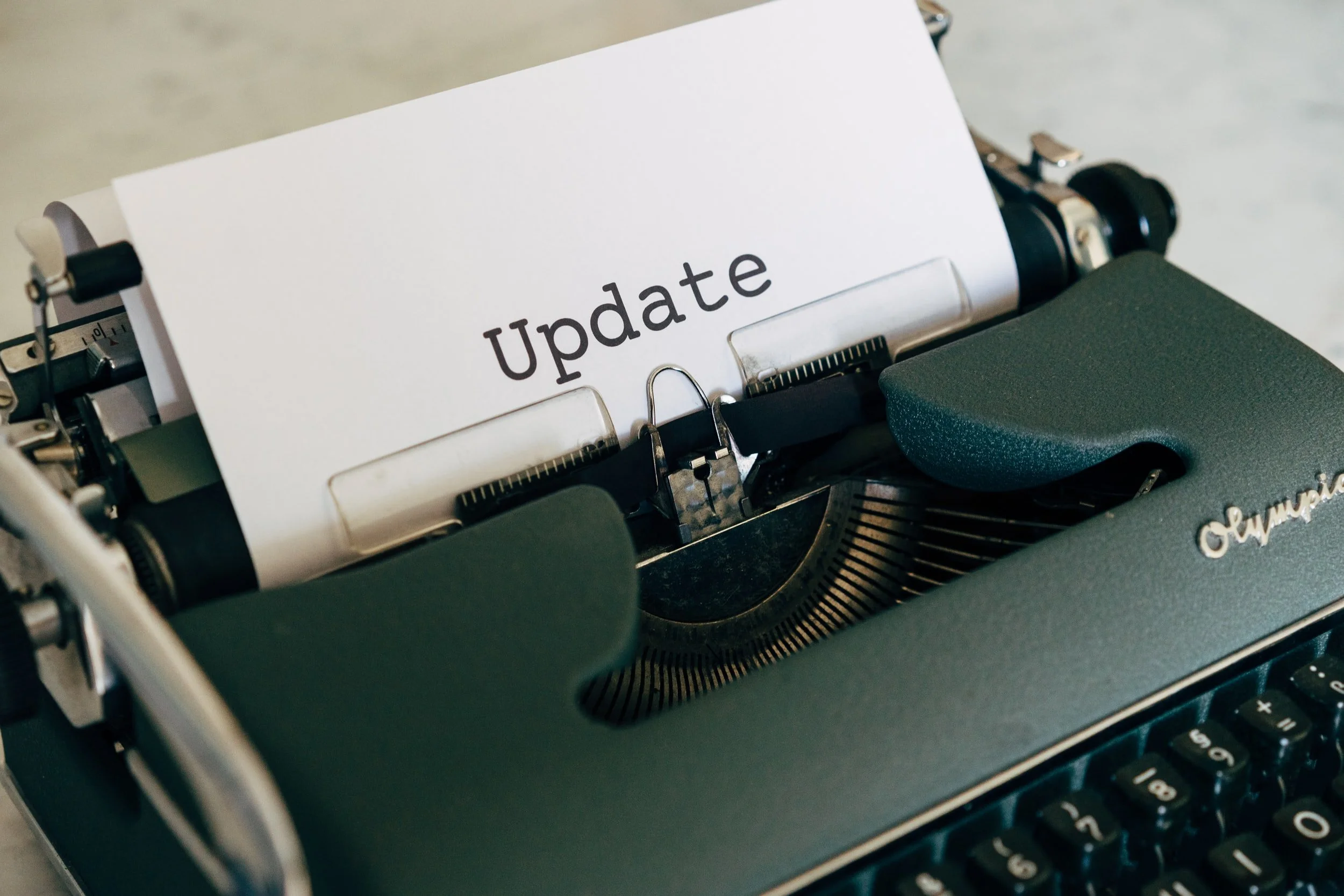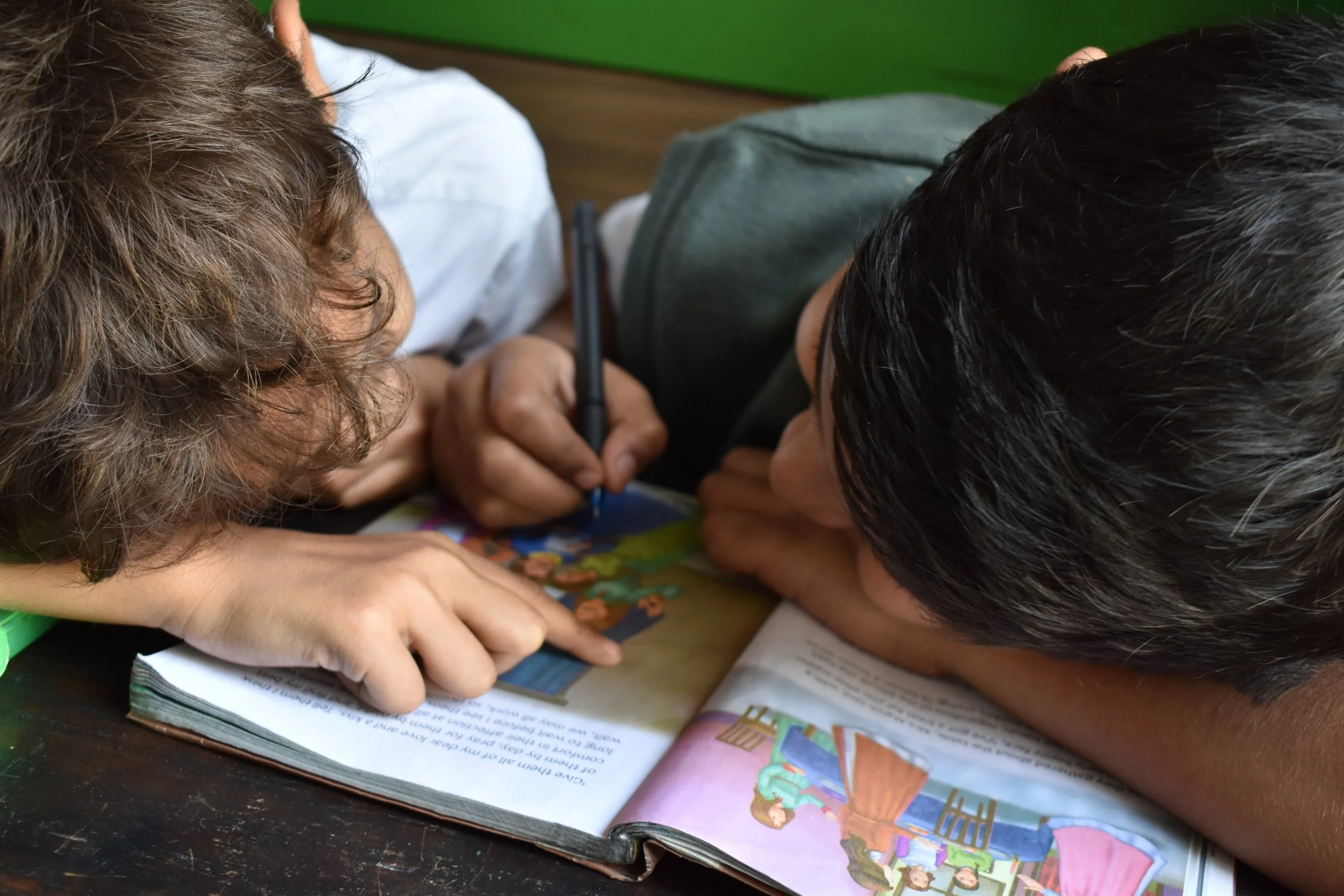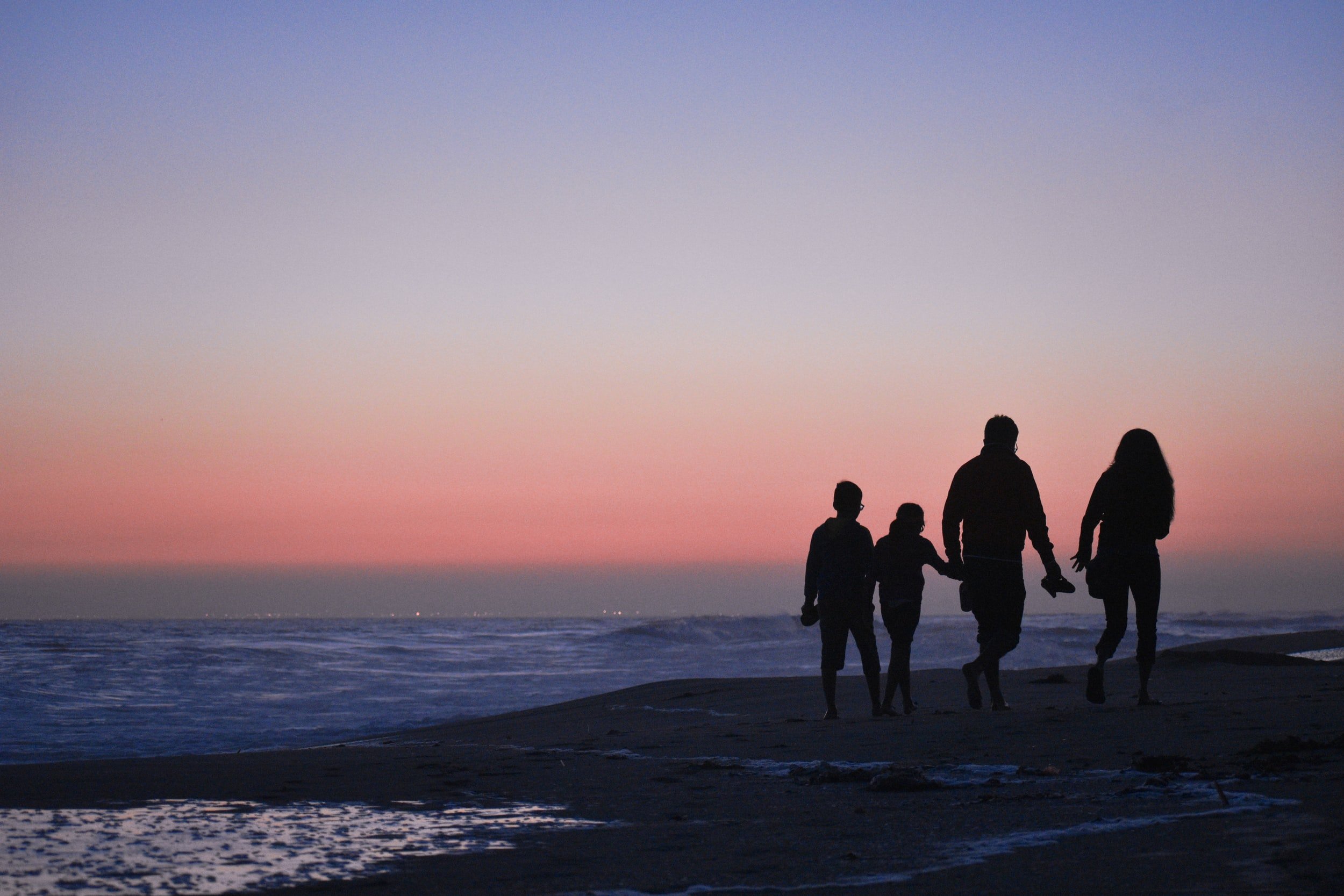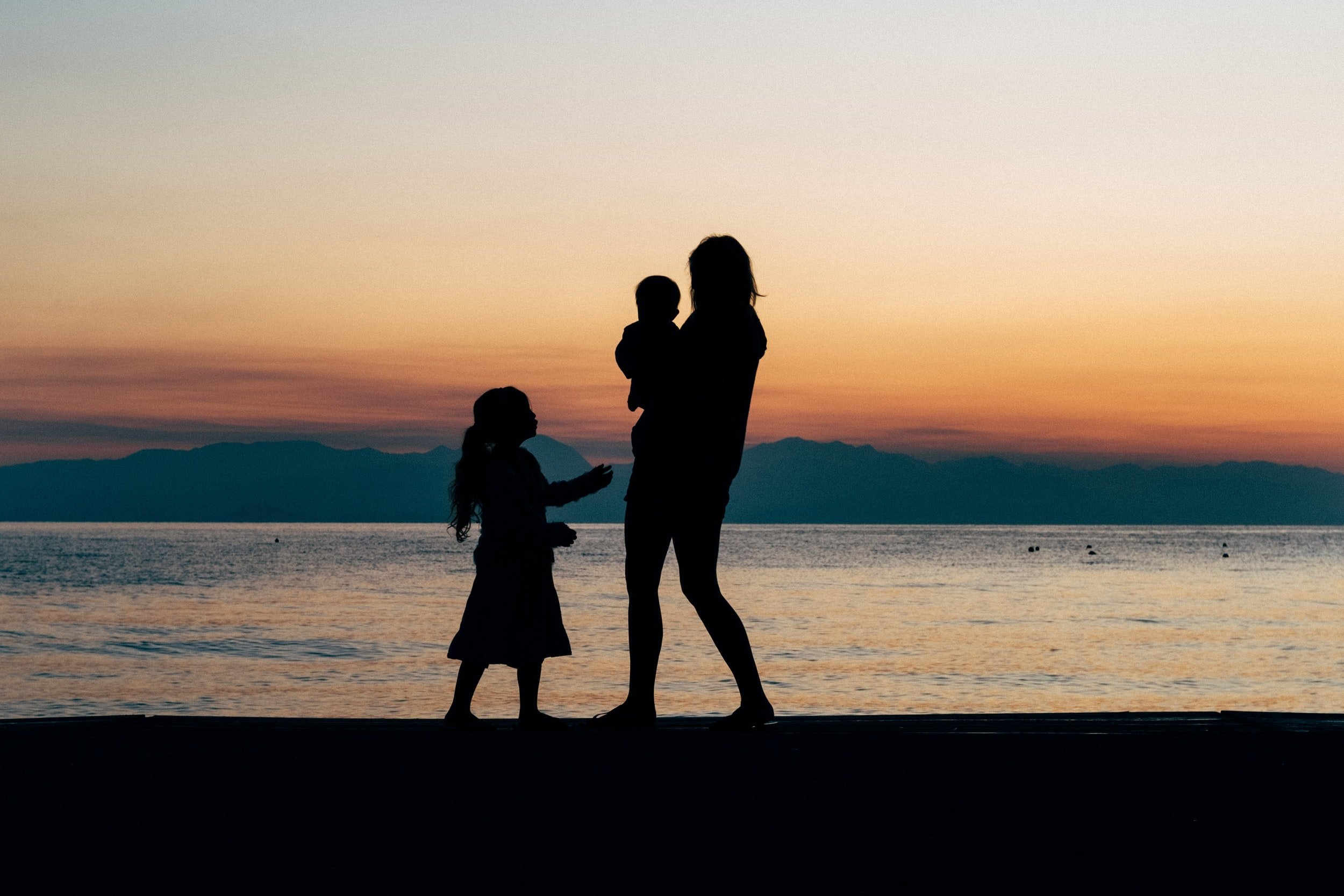Wins and Connections
I have been struggling a lot lately. I have always had some mild struggles with depression on and off throughout my life. I was also lucky enough to be able to see more positivity than negativity, “look on the bright side”, and not let the struggles get me down too much. But the struggle for my family with twins with FASD is so real and so hard. Sometimes it just feels like the blows come too quickly to be able to readjust and recover as quickly or as easily, and there is always at least a little bit of a toll on me.
Throughout my parenting journey, I have never given up on the search for whatever I can find that may help us through this. There have been many resources that I have found, books purchased, Facebook groups joined, coaching groups attended..............you get it! That is no different for any parent in the world.
For our group of children, however, there are more aspects to consider, and you really must consider them all to get a true picture of your struggling child. Early on it involves difficulties with eating, sleeping, normal child development, sensory processing. Then when they get to school you add attention, trauma response, attachment trauma, felt safety, separation anxiety, social skills differences, and scatter of skills. Over time, these differences start to affect every aspect of school adjustment from auditory processing to memory, to executive functioning deficits to regulation difficulties and social skills deficits. Then there are all the appointments. Therapy, assessments, doctors' visits, searching for answers and diagnoses. Trying to keep it all in mind, supporting polar opposite kids who both need different special accommodations that are not usually compatible with each other is just killing me! And we recently found out that both will have to transition to new schools for this fall. Transitions are never good, and unexpected, last-minute transitions are the worst! So, this is my current state of mind, with a huge feeling of doom and gloom.
This is not supposed to be a negative post, but as I ramble it just jumps in there. Sorry! There are many positives for us right now. My husband and I have struggled to adjust our parenting style, with a fair amount of success. We are in counseling to help with communication and differences of opinion in our parenting styles. I LOVE this job, as it is really a calling for me. There will be many challenges, but it is what I need to do. My twins have made tremendous progress in so many areas! My son struggles with that pull of peer pressure and does not always make the safest decisions. Yet he is checking in with us as requested, consulting with us for advice, and staying safe! My daughter struggles with friendships and social situations but has developed a small cluster of individual friends and has found some satisfying activities to fill her time well. Many of the aggressive, destructive, or violent issues we have had in the past are no longer happening. My twins are so different from each other that they have often struggled to be in the same room. They are actually getting along better now!
I know that a lot of our successes are because I have changed my parenting style and perspective. I can see my twins through a trauma lens, an FASD lens, a brain-based lens.
This is me, trying NOT to write a long blogpost, and I am having difficulty with that!
Anyway, I have gone down every rabbit hole to find solutions for challenges that my family has faced. I have found merit in so much that I have researched. But let's suffice it to say that it means that there are so many possibilities for the symptoms that the twins have. Is this a trauma reaction? Related to skill scatter? Dysmaturity? Auditory processing? Sensory overload? Now let's add the typical response from the typical everyone-who-knows-nothing-about-my-child-and-the-FASD-diagnosis “Oh that’s just typical growing pains,” “Yeah, my kid did that too”,” You just need to _________,” “Teenagers” and the best one yet “This kid just needs a swift boot in the butt to straighten out.” I will not go down that rabbit hole, but I think you get it! We and our children are not very well understood. So, over time you lose friends, spend less time in the community, less time with extended family and friends as you accommodate your struggling children. It is a lonely life. So, all that worry, and limited support is weighing on me right now.
Hopefully, you all still have some people in your life that you can confide in, be raw and real, and not feel judged. I have a nice handful of people like that in my life. One of those special friends of mine is very good at calling me to check in and seems to have an intuition to call me when I am starting towards despair. Yesterday, I chose to call HER because I really needed her, but she had not gotten her ESP message that I was in need. Come to find out, I had the intuition to call her, and she needed ME this time. She shared her struggles with her now older, grown girls (in their early to mid 20’s). We shared, we laughed, and we cried. In her typical “Always there for me even when she doesn’t intend to be” way, she shared that she was listening to a TBRI podcast interview with a young adult adoptee that morning that was so inspiring. I don’t know if you know TBRI. Trust-Based Relational Intervention, Karyn Purvis, “The Connected Child,” Trauma informed parenting techniques to help vulnerable children like ours. One of the many things I reference learning about in my parenting journey. She shared the podcast episode with me and said I really need to listen to this ASAP. I did. Right after we hung up. 3 times in a row, and then listened to the one before it because it was an interview with the adult adoptees mother. So profound, so helpful, so insightful about the mindset and perspective of an adopted child. There is no mention of FASD, and it doesn’t seem to be a huge possibility, but this touches on adoption and attachment issues. There are so many other similarities in his discussion of his challenges that it is very powerful and pertinent. Here is the link for the podcast with Yohannes Aguayo.
The TBRI Podcast: Yohannes' Story
So that is the shortest description of the longest and most difficult journey in my life. I have found so many great support systems online, in books, podcasts, blogs and the like. I want to share them all with you! This one had to come now because I just found it yesterday and yet it had such a profound message of hope for the future. Sometimes it is a huge struggle to find the hope.
We need to share both our struggles AND yet still find the positives and the hope. Visit our website at massFAS.org email FASD@healthrecovery.org. We are on twitter, Instagram, and Facebook . Come to our parenting group to learn more. Reach out, reach out, reach out! To anyone that you think could be helpful. I will be detailing different books, resources and podcasts in blogposts, but it has been hard to focus my attention on that with all my not so little worries lately! Soon I will......just letting the dust settle.
Kristen
Happy Mother’s Day to all the moms out there!
By Kristen Eriksen
Happy Mother’s Day to all the moms out there!
If you are raising or have raised a child that is not your own by birth, Mother’s Day is an entirely different event. As wonderful as it is to have a special day to honor one’s mother, there are children who are not in contact with their mother, or whose relationship with their mother is not primary care, is contentious or is severed.
It wasn’t until I adopted my twins that I realized how much the traditional holidays and Hallmark card days can be triggering to them. Many people do not understand the raw emotion that is evoked on every birthday, every family celebration and every Mother's Day that you are not with your birth mother.
It did not take me too long to notice that Mother’s Day was a triggering day for my twins. They do not know their birth mom. They were not yet two when she died. We always talked about it and about her on Mother's Day. I just now remember that we talked about planting a tree in our yard to commemorate her. I am embarrassed to say that I have forgotten about that for several years, and we have not yet planted said tree.
For 5 or 6 years, we celebrated Mother’s Day differently than most. There was an annual Mother’s Day 5 K run for Opioid Awareness in our town, and we spent the day volunteering at the event. My son was always on “traffic duty” sporting a neon orange or yellow shirt and safety vest, helping others to stop traffic, redirecting cars, and cheering on runners. My daughter waited at the finish line to cheer runners on and hand out flowers to runners as they finished the run. There was always a cookout at the end, and my husband and the twins would help cook burgers, etc.
I talked with my twins about how we were doing this to honor their mother, who had substance use disorders for many years, and died of an overdose. I have often thought about her, and how much she must have struggled over the years. She did not raise any of her children. My twins did not have any contact with her after they were discharged from the NICU. They will never get to meet her or have any potential to have a relationship with her.
Sadly, due to the pandemic among other things, Nancy’s Mother’s Day Run-Walk is no more. Mother’s Day is only a day to celebrate with me, not in memory of their birth mom at this event. It is a stressful day here, because no matter how good, loving, caring yada yada whatever I am as a mother to them, I am not their birth mother. I did not give them life. The primal wound of adoption will always be there, and I so wish I could continue to spend the day volunteering at that 5 K. It filled our day with a purpose that is so much bigger than me, and so much easier for my twins to bear. This year, I think we need to plant that tree............
So, again I say “Happy Mother’s Day to ALL the moms out there. I found and love this graphic, but it does not include adoptive mothers..........so I will add that one myself!
In Peace and Love,
Kristen
“Sometimes I feel left out, like everything is about him.” Having a Siblings with an FASD
My husband and I have two children. Our daughter is a 10-year-old neurotypical kid. Our son is 8 and has FASD. Our daughter has always struggled with having a sibling with FASD. Over the last two years things have picked up with our son’s aggression and our daughter’s stress levels.
She is witnessing anger and aggression, and even though we explained to her about his FASD she does not understand why he acts the way he does. He looks “normal”. As we all know FASD is an invisible disability, and because of this, we struggle as parents. Neighbors and schools do not understand our children. I have been yelled at by other parents because of the way our son acts. We get comments from teachers. Our son has been excluded from birthday parties.
Parenting these two different children is difficult for us. Often my husband and I split the weekends up with the kids. I take our daughter out while he stays at home with our son, who easily becomes dysregulated when not at home. This gives them much needed time away from each other. It gives her a chance to be a typical kid. She can go out and we do not have to worry if her brother is going to have a tough time, meaning that we must curtail the outing.
Today I asked her to write about her feelings about what it is like to have a brother with FASD. She wrote:
I have a brother who has FASD. He can be very loud at times. He also talks a lot and loves to build Legos. But sometimes I feel left out like everything is about him.
Recently, I found some important information FASD United Colorado released I thought I would share. We are doing our best and trying to set as much time aside with our daughter.
Is My Child Afraid to Tell Me That He Doesn’t Like His Sibling with an FASD?
Kids might hate the problems associated with an FASD but still love their siblings. FASD can be confusing because your child may not look disabled. He or she might have a typical IQ but have emotional and behavioral problems. People with an FASD often misinterpret social cues. They might say their sibling is angry with them when there’s nothing wrong. Your children might wonder what their sibling’s problem is or why he or she can’t just “get it together.”
Other feelings siblings might have include
¨ Jealousy or anger about all the attention the child with an FASD gets. They may see a sibling with an FASD getting attention for having problems and act out to get attention. They might pretend to have problems with their schoolwork or complain of illness so that they can get attention too.
¨ Anger about being different from other families. Your children might be upset that your family does not do things other families do.
¨ Isolation and loneliness or feeling that no one else has the same feelings or experiences. Because of the stigma associated with FASD, your children’s friends might be uncomfortable hearing about it and might not want to talk about it.
¨ Guilt for feeling angry or resentful or for not having a disability. Some siblings may feel they are to blame for their brother or sister’s disability.
¨ Embarrassment about the sibling’s behavior or appearance. Siblings who do not have an FASD might avoid contact with their brother or sister or not invite their friends home.
What Can I Do to Help My Children Cope with Their Sibling’s FASD?
You can help siblings adjust in several ways:
¨ Give each of your children individual time without interruption. You might need help from your spouse or partner, a friend, or a relative. But it’s important for your kids to know that they don’t have to have a disability to get your attention. You may want to schedule individual time with each child.
¨ Assure your children who don’t have an FASD that their feelings are okay. Ask them how they feel about having a sibling with an FASD. Encourage them to express their feelings openly.
¨ Help your children accept their sibling’s FASD. They can be angry about the FASD but they still have to be nice to their sibling. After all, no one chooses to have an FASD. You can teach them ways to deal with any bad feelings that arise, such as leaving the room, counting to 10, or writing about it. Anger management skills help in any relationship.
¨ Remind your child that differences make the world more interesting. People with an FASD are different, but they aren’t bad. And we’re all human. A sibling with an FASD may do embarrassing things sometimes such as being clumsy or interrupting others. But guess what? The child without an FASD might embarrass his or her sibling at times too.
Adapted from the booklet “My Sibling Has a Fetal Alcohol Spectrum Disorder: Can I catch it?” published 2006 by the U.S. Department of Health and Human Services, Substance Abuse and Mental Health Services Administration, Center for Substance Abuse Prevention, www.samhsa.gov
Here is a link with some great information on Helping your kids understand their sibling’s FASD
The FASD Respect Act
Asking for Advocacy, yet again!!!!! I promise this is not all that the blog will be doing! It just happens that important legislative efforts are making nice strides, and need a continued push to move forward. Remember to look back at my last blog about Massachusetts legislation, and now let's take on the Country!
The national organization for FASD support and advocacy is FASD United, formerly known as NOFAS. They recently changed their name to reflect their overall goal of increasing awareness and support for FASD services across the country. MassFAS is part of their affiliate network and we have attended many meetings with staff from this organization. Visit their website here: FASD United
They are working diligently on a Federal Legislation called the FASD Respect Act.. This Act is very impressive and detailed. Check out their website for information on the act, and check out their page! We all need this legislation to unify organizations across the country, to get FASD the recognition, support and funding that is necessary. Please visit their website to get more information on this wonderful organization. I have met some wonderful knowledgeable FASD Champions there, and we feel honored to be collaborating with them.
The effort is being coordinated by Jennifer Wisdahl, a mother of several children with FASD. Read more about this legislative effort at There, you can read about the legislation and this great organization. They just launched a super easy way to write to your legislators, asking for support of this act. You just send a text! I did it on Sunday in about 5 minutes. Please take the time to do this to support our super special friends and family members with FASD. Just click on the bold text below and reply to a few questions!
Text Your Support for The FASD Respect Act
You can now text a letter of support for the FASD Respect Act (SB 2238/ HR 4151) to your two Senators and your Representative.
Simply text the words SIGN PRVJQX to the number: 50409.
They have many great tools for parents and caregivers caring for individuals with FASD here
https://fasdunited.org/tools-for-parents-and-caregivers/
Written By Kristen Eriksen
Awesome News!
Sorry to postpone my next blog, but I am here to share some AWESOME news!
The proposed legislation, S 122 “An Act Relative to Persons with Developmental Disabilities” just reported favorably by the Joint Committee on Health Care Financing!!!! It will now proceed to the Senate for further consideration. This is the furthest that this legislation has progressed!!!!
Please, contact your legislators in the Massachusetts Senate, asking them to support this bill!!! https://malegislature.gov/Legislators/Members/Senate
Part of the process of legislation is that bills go separately to the Senate and the House of Representatives, and then if both come out of committees favorably, the two bills are compared for continuity, and then voted on together. Our HOUSE bill H 261 “An Act Relative to Persons with Developmental Disabilities” reported favorably by committee and referred to the committee on House Ways and Means. THIS is the group that we really need to focus on NOW!!!!!
Please, contact your legislators in the Massachusetts House of Representatives, asking them to support this bill!!! Use the link House Ways and Means to find members of this committee. Write, email or call yours, or contact them all!!!
There are sample letters on our website: www.massFAS.org Contact your legilators, PLEASE!!! Every bit helps! All of your past advocacy has gotten us this far. Don’t stop now!!!!
Written by Kristen Eriksen
The time to act on this legislation is NOW!
What do we need in the FASD community in Massachusetts and the US? We need everything, right? We do not have any big diagnostic centers with many doctors ready and available to see patients, and willing to look at FASD. We don’t have centers with FASD Specialists. We don’t have treatment centers. Therapists, School staff and behavioral specialists are not well informed or knowledgable about strategies to support people with FASD. We are in search of help and support every day.
You may or may not be aware, but in the state of Massachusetts, the definition of developmental disability is not the same as the Federal one. Some of the differences mean that individuals with rare conditions like Cerebral Palsy, Low Incidence Conditions like hard of hearing and visually impairment, and FASD are not eligible for DDS services after age 18. That means a lack of support that is desperately needed. There is a bill moving through the Mass. legislation now called An Act Relative to Persons With Developmental Disabilities S122 H261 that would change the law, making it exactly the same as the Federal definition.
The time to act on this legislation is NOW., partly because it is always so important, but also because here in Massachusetts, the bill is moving along, and will be heard in the committee on Health Care Finance by next week.
Please help us support this legislation. Go to our website at www.massFAS.org and go to our advocates page to see a sample letter and list of legislators to contact. Flood the inboxes, call or leave messages about this! We need your help now!!!
OK, now that is our local issue, now onto the entire country!
The Wandering Heart Project
The Wandering Heart Project is to ensure foster and homeless children of all ages throughout Massachusetts have access to basic essentials and clothing.
According to FASD United, It is estimated that almost 70% of the children in foster care are affected by prenatal alcohol exposure in varying degrees. Many children with FASD go unidentified or are misdiagnosed. Often, behavioral problems caused by brain damage due to prenatal alcohol exposure are mistakenly thought to be solely a result of difficulties in the child’s previous home environment.
We work with many different types of families here in Massachusetts. Some have adopted, or are still working with the foster care system. We wanted to write a piece about a great organization here in Massachusetts. These two women, Amanda and Samantha, started The Wandering Heart Project to help children in the foster care system.
In September 2020, Samantha was collecting clothes around her house and from neighbors to donate to children in the foster care system. A local social worker then reached out asking for the location of the organization and was disappointed to hear it was a distance away. That's when Samantha had an idea. She immediately started calling and texting family and friends stating that she was going to start collecting clothes for foster children to distribute to local DCF offices.
When Samantha called Amanda to ask if she had any to add, instead of offering clothing, Amanda immediately wanted to be involved. Having experienced difficult times in their own childhoods, both friends understood the hardships many youth in the system face.
After discussing and then researching, they realized there was a need for readily accessible essentials and clothing for foster and homeless children in Massachusetts. They immediately sprang into action and in minutes the idea for The Wandering Heart Project was born (mostly via text message)! Initially Amanda and Samantha thought they would start small, collecting clothing donations in corners of their homes. However, after just reaching out to family and friends and creating their first posts on social media, the outpouring of love and support from their community was overwhelming! Their little donation corners grew.
WHP makes regular donations to foster children all over Massachusetts along with children experiencing homelessness.
Contact The Wandering Heart Project for more information or to donate.
Our FASD Journey
My name is Laura Bedard. I work alongside Kristen Eriksen at massFAS. I wanted to tell you a bit about our FASD journey and how I got to be co-coordinator at massFAS. First of all, I am an artist. I have a master's degree in Fine Arts. Years ago, I was working in museums and teaching art at local colleges.
I thought that was important to me, until I met Enid Watson at massFAS. Helping families and advocating for FASD has become a major part of my life and I love it.
After getting married and having our daughter, my husband and I decided to adopt. Our son, who is now 8, was adopted at birth through a private adoption.
Our son was born prematurely and was in the NICU. When I saw him for the first time he was connected to all kinds of wires, a feeding tube and oxygen. Thankfully, every day he did better and wires and feeding tube disappeared. Once we got him home, we noticed sleeping issues. By 15 month he was showing delays with motor skills and speech. We did early intervention, private speech therapy and sensory processing therapy. Within a couple of years, we saw aggression and anxiety. The aggression picked up to a point where we needed to get outside help. We had no idea what was going on. Was this the beginnings of a mental illness? His birth mother told us she did not use drugs while pregnant and there was no family history of mental illness. Why is he becoming so violent and angry?
As the aggression got worse, learning, memory and behavior issues began to arise in school.
Getting a diagnosis was not easy. First he was diagnosed with Autism, but we knew there was something else. Two years ago, he was diagnosed with Partial FAS. After years of searching for answers, we felt some relief. All these puzzle pieces fit together. Great, we have a diagnosis, let's fix it! Unforturnally FASD does not work that way. There is no cure. Sadly, in the United States, Massachusetts has limited to no support for families and adults with FASD. Our in-home therapists have said that they never worked with anyone with FASD. They would go home and google FASD before coming back to the house. Our pediatrician told me “I have not seen FASD in 40 years.” It was like being on an island. No one got it. No one understood what it was like day after day.
After searching for help online I found massFAS and I met Enid Watson over a year ago. She was the first person who understood what it was like to care for someone with FASD. I suddenly didn’t feel alone. We talked for a while and she connected me with Kristen. She was the first mom I spoke to who had children with an FASD. “She gets it too!” I thought.
Since Massachusetts did not have an FASD support group for parents and caregivers, Kristen and I got together and started one through massFAS. We have a wonderful group of moms who join every week. We all get it. We all get each other. We can talk about our week and share resources.
When Enid told us she was retiring Kristen and I were in shock. I just found Enid and this wonderful community; she cannot leave! Kristen and I knew we needed to step in. Enid has done an amazing job raising awareness in Massachusetts and supporting parents. I hope we can at least take over for her. We want to reach as many people as possible about FASD. massFAS will continue to educate and support Massachusetts.
Today our son loves his in-home therapist. He is making friends at school and LOVES his Legos. Our daughter is struggling at times. It’s difficult dealing with a sibling you can’t understand and who is unpredictable. (that’s a topic for another discussion) But we are progressing.
Things at home are far from perfect, but we are doing our best. Two years ago, I felt like I was alone on an island, but I know I am not alone. We are in this together and we will raise awareness, get more supports in place and help people and families in Massachusetts affected by or raising children with FASD.
Let’s Get Started!
Written by Kristen Eriksen
Hi everyone! First of all, thank you to anyone who has found our page! We really want to make this a place where you are able to find information, help and support on your FASD journey.
I would first like to introduce myself. My name is Kristen Eriksen. I am a mom, a nurse, a fierce advocate for change in general, but especially in the realm of FASD. My “partner in crime” Laura Bedard and I recently took over as MassFAS FASD Program Co-coordinators at the Institute for Health and Recovery in Cambridge Massachusetts. We have replaced our guardian angel, Enid Watson. She has worked tirelessly in this position for 20 years, and is now embarking on a much deserved retirement.
I am the mother of boy/girl twins, now almost 15 years old (yikes!) with FASD, RAD, anxiety and ADHD to name a few of their diagnosis’. As a nurse who worked in OB, Pediatrics, Early Intervention and schools, I thought I would be very capable of raising my babies, and I was, sort of. I was always a believer that many children are square pegs being forced into round holes at school. That was the first place that I had to become an advocate. Before having an FASD diagnosis, I knew that my babies had experienced birth trauma due to a toxic intrauterine environment including smoking, drugs, alcohol exposure, homelessness, poverty, and incarceration. Even though I am a nurse, I was not aware of FASD’s prevalence, or the overall nature of FASD as a lifelong invisible disability that affects the brain and body of the individual in all aspects of daily life. I was focused on trauma, attachment, feeding issues and previous drug exposure. I used my EI background in feeding therapy and sensory integration to give them a great start. Then, they started school. It was not only evident to me that they were having different challenges than most littles, but the school system did not validate or agree with my concerns for several years. Even then, as we started the journey of out of district school placements, the focus was on behavioral management. And it was not working. Currently, they are each at a different out of district school placement. Neither is perfect, but things are going more smoothly now at school.
What I hope to do on this blog is share anything and everything that I can think of to help families. I have been listening to many podcasts, joined many coaching support groups, read many books (I actually have a pretty good library of books to discuss in posts here), learned many strategies in neurodevelopmental parenting, and knowledge that I have gained from others who have helped me tremendously along the way.
My twins are fantastic little people! They both have many strengths that need to be recognized, fostered and expanded upon, that will be their saving grace. However, they also have many struggles that I have learned to recognize more and more easily as time goes on. The goal is to help them handle their shortcomings, turn them into insights that they can gain about what they mean and how to use different coping skills, communication and effective strategies to live a good, happy, healthy and satisfying life.
Please let us know what topics you would like us to present. There is no such thing as a stupid question. Feel free to reach out to us. I can’t wait to work with all of you!

